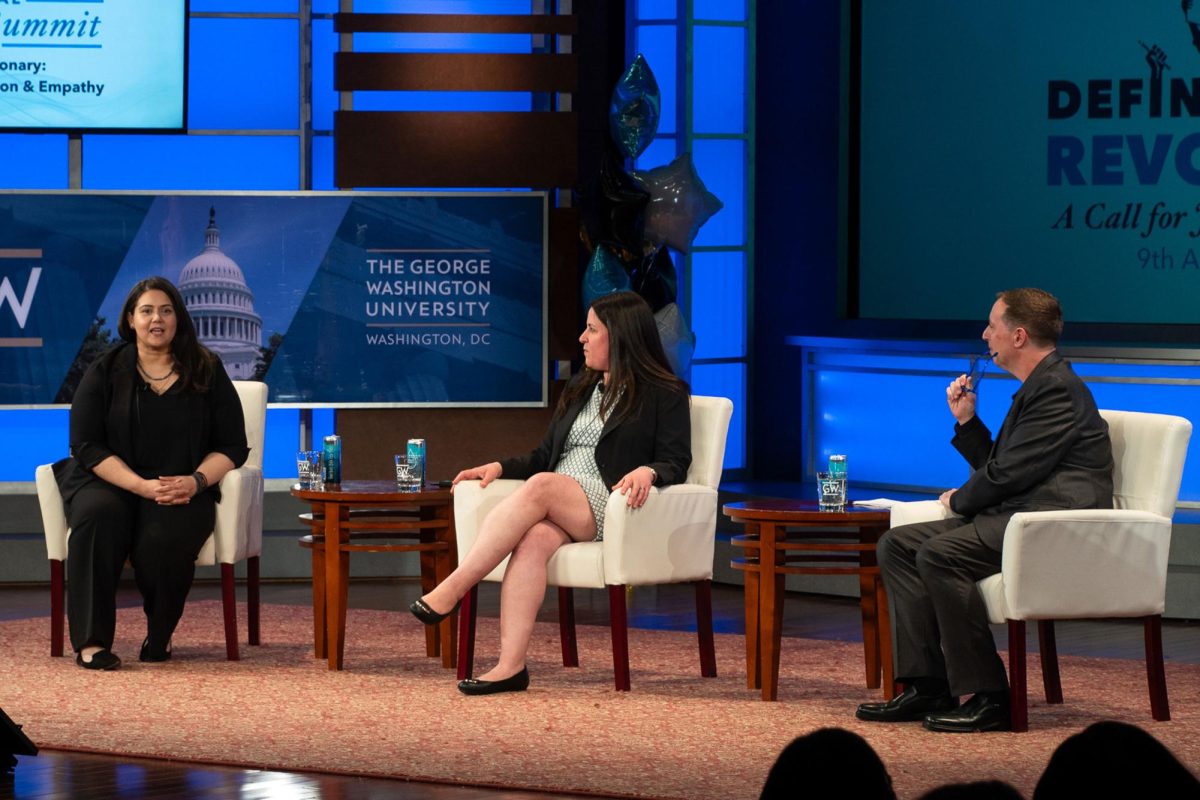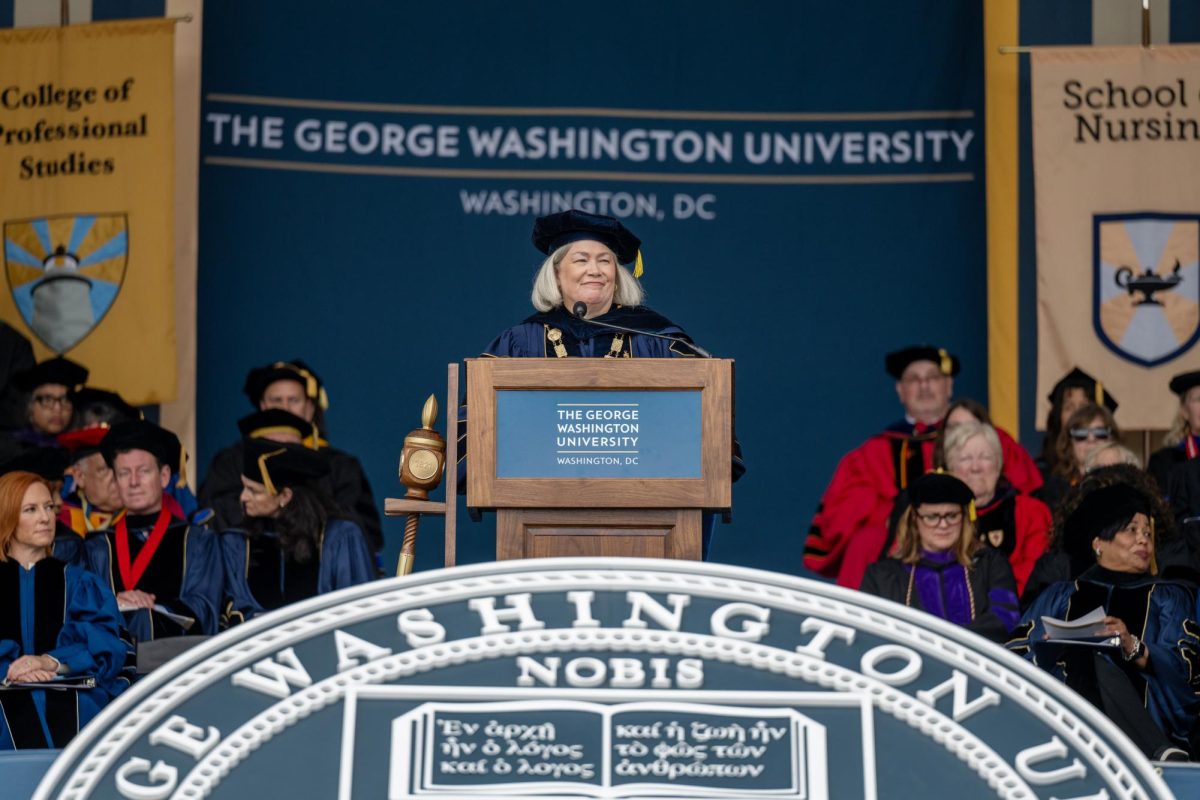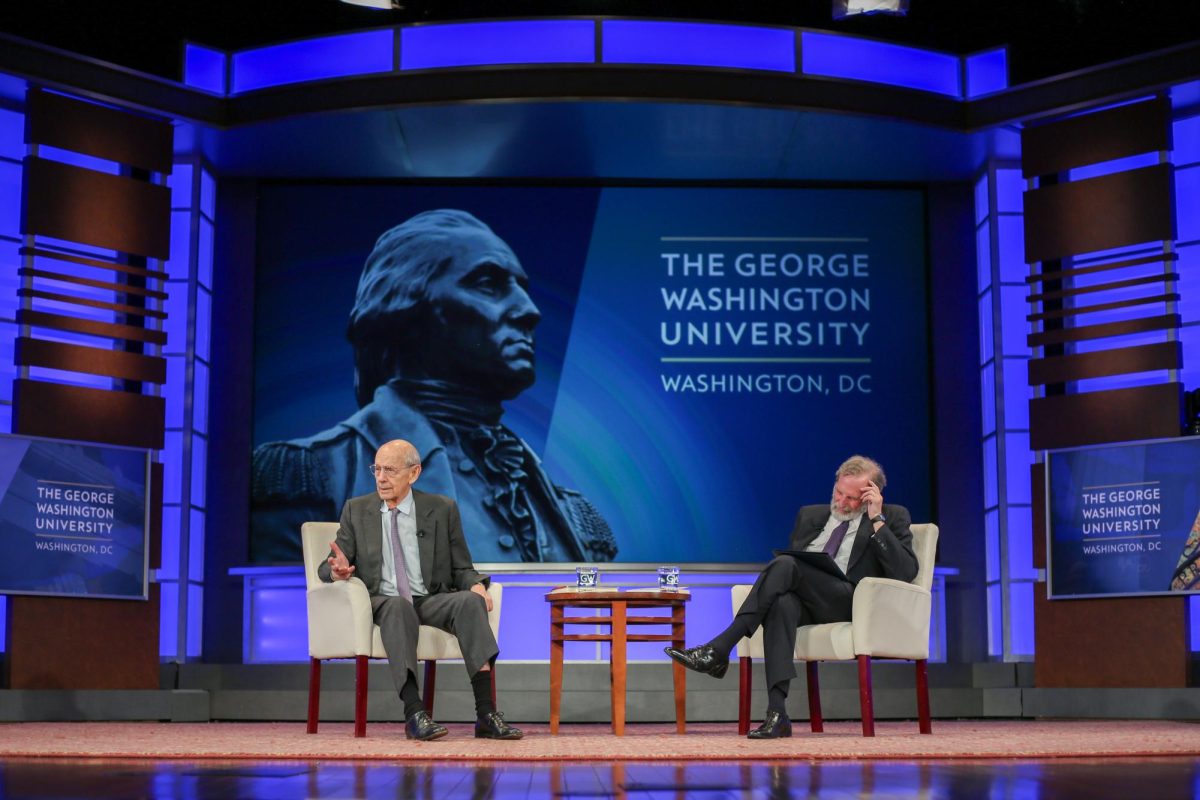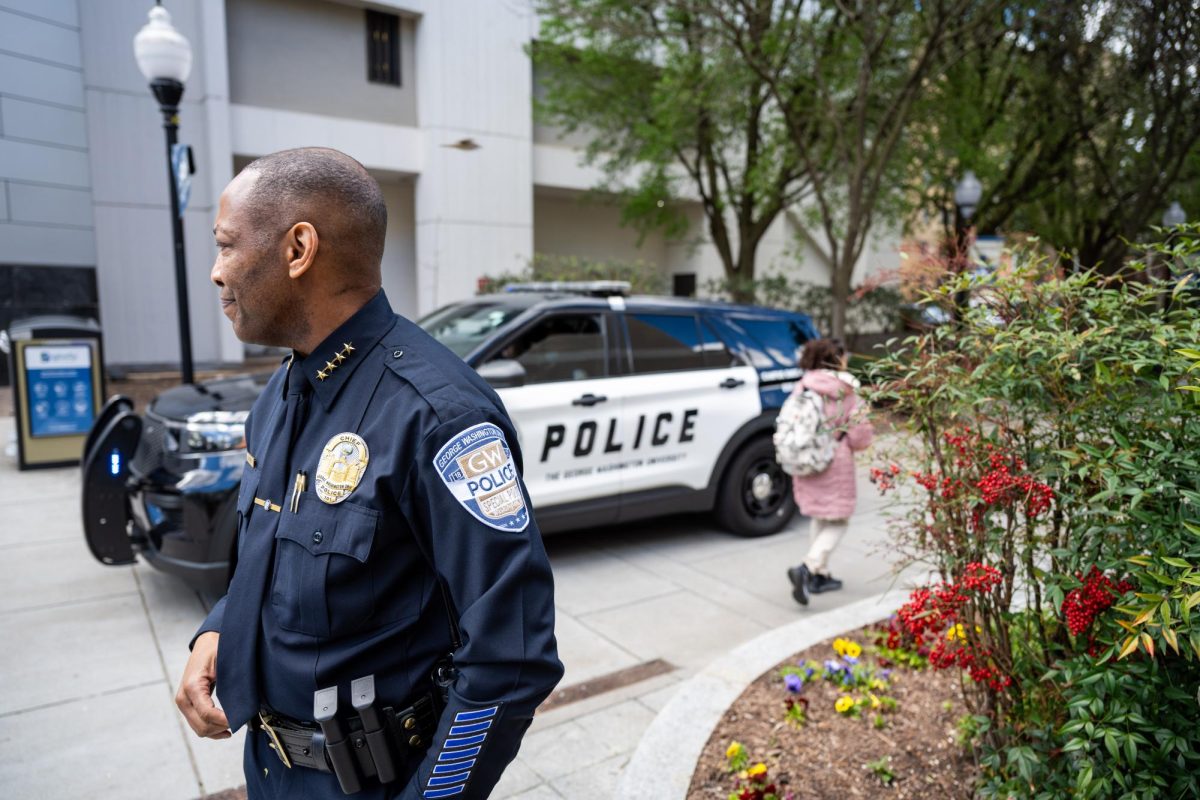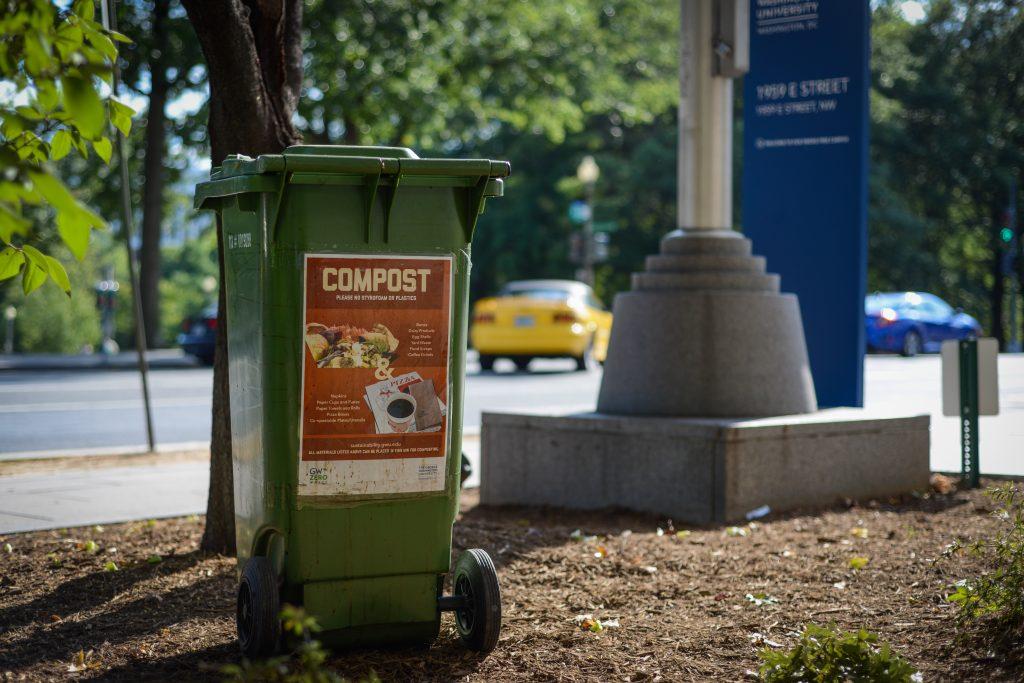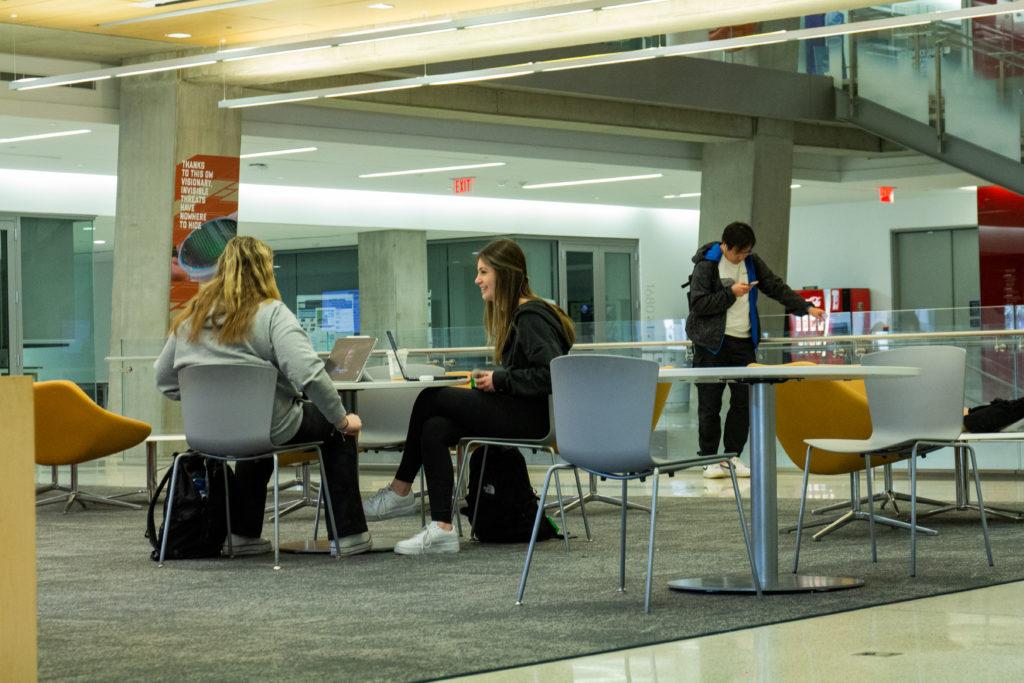Religious diversity advocates discussed how to address religious and political conflict on college campuses during the Diversity Summit keynote at the School of Media & Public Affairs Tuesday.
Jenan Mohajir and Rebecca Russo — the vice president of external affairs and the senior director of higher education strategy at Interfaith America, a nonprofit dedicated to promoting religious diversity — said college campuses should encourage students to deepen and challenge their own worldviews and build relationships despite conflict. The keynote opened GW’s ninth-annual Diversity Summit titled “Defining Revolutionary: A Call for Justice, Liberation & Empathy,” which has programming scheduled Tuesday through Thursday.
Associate Vice Provost for Diversity, Equity and Community Engagement and chair of the summit Jordan West and Provost Christopher Bracey delivered opening remarks at the top of Tuesday’s keynote. West said it’s a “privilege” to connect as a community amid continuous mass shootings in the U.S. and wars abroad, and that GW’s “Revolutionary” moniker entails a commitment to justice, liberation and empathy.
“Being a revolutionary is a profound commitment to making the world a fairer, more compassionate and more inclusive place,” West said. “It’s a call to action for those who refuse to accept the world as it is and are determined to shape it into what it should be.”
Bracey said the Diversity Summit serves as a “model” for the University’s attempt to foster “productive” dialogue as part of its Strengthening Our Community in Challenging Times plan that Bracey and University President Ellen Granberg announced in January. The three-part plan includes educational programming to address university life during times of conflict, support for those affected by the war in Gaza and doxxing victims and a review of the University’s free speech and conduct policies.
Mohajir said she was a Muslim student leader at DePaul University, a private Catholic university, and worked with food vendors on campus to provide authentic Kosher and Halal meals as an intern for the university’s ministry office. She said working alongside the Jewish students in the ministry office who she had a disagreement with taught her how to balance her responsibilities with her personal values.
“Having both of those experiences in that moment, gave me both a lot of pause for how I was orienting on campus, but also gave me the ability to know that I could live in both of those worlds — I could give my responsibility the importance that it needed in both of those worlds,” Mohajir said. “And I could still hold true to the values that I felt called to while working towards a campus that was able to hear all of those perspectives collectively.”
Mohajir said her family, who is Palestinian, has had many conversations about their Muslim faith following Hamas’ attack on Israel on Oct. 7. She said she tries to explain the nuance between “good” and “bad” to her son, who wonders how he can advocate for the Palestinian cause without being associated with Hamas.
Mohajir said the goal of Interfaith America — which she said has worked with faculty and staff on almost 600 campuses in the U.S. — is to engage diversity toward a positive end. She said their work in fostering “pluralism,” or cooperation, on college campus is defined by promoting respect, relating with others and cooperating toward a common goal.
“You may have deep disagreements on Israel-Palestine, you may have deep disagreements on the current polarization of politics in the United States, you may have this deep disagreement on theological values that you have, theological views that you have,” Mohajir said. “But what is it that you can come together on while understanding that that disagreement is still present?”
Mohajir said Interfaith’s IDEALS survey, a longitudinal survey to track the affect on-campus interfaith experiences on bridging religious divides, found informal and formal engagement or cooperation oriented activities on college campuses increased appreciation toward and between Muslim and Jewish students.
Russo said her Jewish heritage and upbringing gave her a sense of “peoplehood” and connection to Jews around the world. She said she became interested in interfaith work as an undergraduate at Brown University, which exposed her to different perspectives from the one she was raised with.
“It didn’t diminish my own sense of who I was or my anchoring or the connection that I had to Israel that is deep in my bones, but it helped me think about the world in a much more complex way and set me down the path to the work that I’m doing today,” Russo said.
Russo said she has family members who live in Israel and were in the country during the attack. She said she tries to explain to her son that loving Israel and saving Gaza are not “mutually exclusive.”
Russo said universities should be a place to listen to perspectives we disagree with. She said universities should provide students with the tools to address conflict, like tensions surrounding the Israel-Hamas conflict, on campus, in workplaces and in civic spaces.
“The role of places like this is to help students develop the mindset, the intellectual chops, the skills to be able to have conflict in healthy and productive ways and to go out into the world and be leaders who can model for the rest of our society what it looks like to model conflict well,” Russo said.


